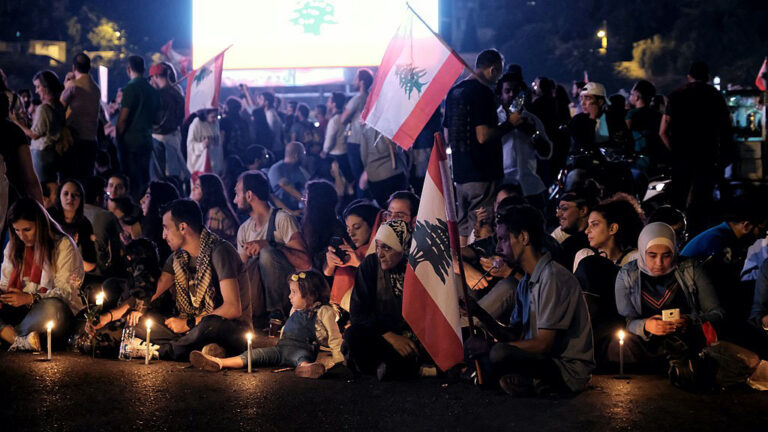In Lebanon, thousands of people are expressing their grievances as the government announced to impose a tax on WhatsApp. Deep structural crises have culminated in one of the largest protests to occur in Lebanon in 14 years.
Hong Kong, Venezuela, Chile and Iraq: all over the globe, people are expressing discontent over unstable economic systems, dire living conditions and authoritarian governments. In Lebanon, spontaneous protests erupted on October 17th, 2019 as the government announced to impose a tax on WhatsApp phone calls. Since then, thousands of people have been protesting in a culmination of structural economic, social and political crises.
In response to the growing protests in Lebanon, the government reacted promptly by recalling the WhatsApp tax and proposing several economic reforms. A particularly significant event has been the resignation of Prime Minister Hariri (and his cabinet) on October 29th.
The WhatsApp tax has only been a stroke in the fire – but a significant one. WhatsApp is an essential tool of communication in Lebanon, considering that phone and data rates are very expensive. As the regime follows policies of regressive and indirect taxation, inter alia, the wide use of WhatsApp made it seemingly an ideal object of taxation. However, as this would have implications on the society at large and affect particularly the unemployed and working poor, the government’s plan has been met with backlashes.
Furthermore, the Lebanese economic crisis is marked by negative trade balances, zero growth and a national debt at around 150 percent (85 billion USD). Living costs and unemployment rates are skyrocketing. Significantly, youth unemployment was estimated at 17 percent in 2018. In addition, poor provision of infrastructure, such as electricity and water, deteriorated people’s social situation and well-being. The political elite are blamed for misallocation of public funds, clientelism, corruption and neoliberal policies that triggered inequalities within the country. Accordingly, discontent has been simmering in Lebanon for years which has now led to the uprisings.
The protests are characterized by protestors who have been organising sit-ins and blocking main roads. Banks, universities and schools were closed for several days. Although the movement is leaderless, activists have clear demands: the resignation of the political elite (chanting “all of them means all of them”), ending political sectarianism, accountability of the government for mismanagement and corruption and a new technocratic government. Two events are symbolic for the movement: a 170 km long human chain expressed a sense of Lebanese unity, regardless of religion or societal class. A video showing a female activist who kicked a guard and confiscated his gun, went viral on social media and resembles the strength of the movement.
Since the protests which peaked particularly in October and November 2019, a new government has been formed in January 2020, with the former university professor Hassan Dieb replacing Saad Hariri. However, protestors took to the streets again, after the new cabinet has been announced. It remains to be seen how the process will continue and what shape it will take.


